 The wait is over…and there’s a storm on the horizon…
The wait is over…and there’s a storm on the horizon…
Hilary James is back with the release of her new album ‘Storm Warning’.
 The wait is over…and there’s a storm on the horizon…
The wait is over…and there’s a storm on the horizon…
Hilary James is back with the release of her new album ‘Storm Warning’.
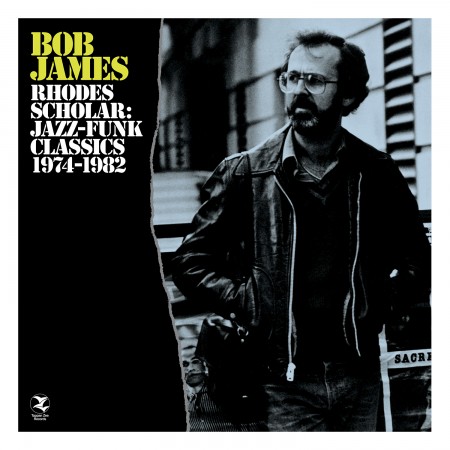 Pianist and composer Bob James may very well be the most sampled jazz musician in the history of hip-hop. Pieces of his now famous compositions like “Nautilus” and “Take Me to the Mardi Gras” have been endlessly loaded into MPCs, SP-1200s, and various other sampling devices for well over two decades. And those loops and chops make up the sounds of some of rap’s dopest records ever, like Ghostface Killah’s Wu banger “Daytona 500,” and Warren G and Nate Dogg’s West Coast classic “Regulate.” And that’s just two of hundreds. Scroll through Bob’s WhoSampled page, and you’ll find the names and sounds of seminal songs by Run-D.M.C., Gang Starr, Public Enemy, A Tribe Called Quest, Main Source, Slick Rick, and countless other renowned rap acts. They all recognized Bob’s brilliance, and chose his music to be a part of their sample-based hip-hop masterpieces.
Pianist and composer Bob James may very well be the most sampled jazz musician in the history of hip-hop. Pieces of his now famous compositions like “Nautilus” and “Take Me to the Mardi Gras” have been endlessly loaded into MPCs, SP-1200s, and various other sampling devices for well over two decades. And those loops and chops make up the sounds of some of rap’s dopest records ever, like Ghostface Killah’s Wu banger “Daytona 500,” and Warren G and Nate Dogg’s West Coast classic “Regulate.” And that’s just two of hundreds. Scroll through Bob’s WhoSampled page, and you’ll find the names and sounds of seminal songs by Run-D.M.C., Gang Starr, Public Enemy, A Tribe Called Quest, Main Source, Slick Rick, and countless other renowned rap acts. They all recognized Bob’s brilliance, and chose his music to be a part of their sample-based hip-hop masterpieces.
Bob James, of Fourplay and CTI fame, is the subject of a Japanese Public Television documentary called “Hearts Together.”
The beginning of the story is Bob’s work with amateur musicians from earthquake-stricken Northeast Japan a few months after the disaster. But that work, and a song Bob wrote for the project, “Put Our Hearts Together” have spawned many more positive events and collaborations which have been added to the story (and the documentary).
The latest chapter in the story will be the local premier of the documentary–including music, a film crew from Japan and much more–on Sunday 8/12/2013 at the State Theater in TC.
 OTTAWA — Scratch a veteran smooth jazzer and underneath you might find a jazzer.
OTTAWA — Scratch a veteran smooth jazzer and underneath you might find a jazzer.
So it seemed from Monday night’s TD Ottawa Jazz Festival concert by Bob James and David Sanborn. The two jazz stars, co-leading an acoustic group with drum legend Steve Gadd and rock-solid, scene-stealingly good acoustic bassist Scott Colley, played with not only crowd-pleasing accessibility but great intensity and sincere commitment, too.
While they might be renowned for a string of polished, funky studio efforts that opened the door for the vapidity of Kenny G and the smooth jazz ilk, James and Sanborn, while true to their signature sounds, were not making background music. The concert was certainly polished and smooth, groovy and bluesy, but smooth jazz in the elevator-music sense it wasn’t.
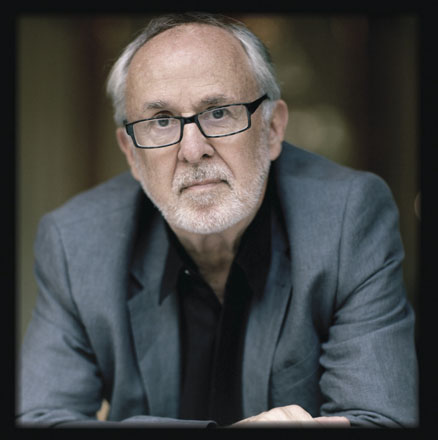 We’ve been talking about jazz this whole time, but to the younger generation you’re mostly known as someone whose work has been sampled in countless hip-hop songs.
We’ve been talking about jazz this whole time, but to the younger generation you’re mostly known as someone whose work has been sampled in countless hip-hop songs.
[Pauses] Is that a question? [Laughs]
On first glance, you’re probably the last person in the world that would be associated with hip-hop, as indelible as the melodies and the compositions that you’ve come up with are. Do you have any idea how it all started? I’m guessing it was from “Nautilus,” but when did you first realize that something was going on there?
I wish I knew. I was flabbergasted, and I think I was probably a little bit slow in even finding out about that crazy phenomenon that happened. The first one that I discovered came about as a result of a friend calling me to ask me if I was aware of [DJ] Jazzy Jeff and the Fresh Prince, and they had a recording [“Here We Go Again”] in which they had sampled my recording of “Westchester Lady.” This came before, whether or not historically it came before the sampling of “Nautilus,” I don’t know, but this was the first one that I became aware of. And it reached the public spotlight because their record [“Parents Just Don’t Understand”] won the [Grammy Award for Best Rap Performance].
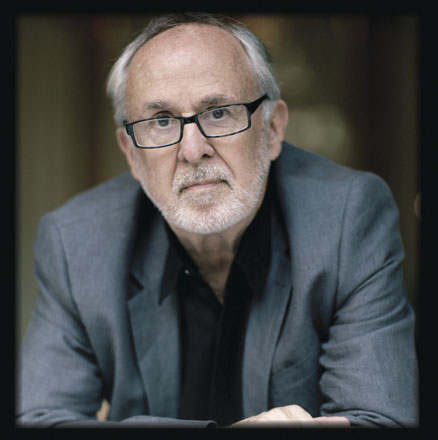 Jazz legends Bob James and David Sanborn pay tribute to the iconic Dave Brubeck Quartet on their new album Quartette Humaine, their first collaboration since their 1986 platinum-selling, Grammy Award-winning Double Vision disc. An all-acoustic project featuring bassist James Genus and drummer Steve Gadd, the album (released May 21) is the heart of an ambitious national tour featuring the four musicians with a launch planned at New York’s Town Hall June 6.
Jazz legends Bob James and David Sanborn pay tribute to the iconic Dave Brubeck Quartet on their new album Quartette Humaine, their first collaboration since their 1986 platinum-selling, Grammy Award-winning Double Vision disc. An all-acoustic project featuring bassist James Genus and drummer Steve Gadd, the album (released May 21) is the heart of an ambitious national tour featuring the four musicians with a launch planned at New York’s Town Hall June 6.
This year also marks the fiftieth anniversary of James’ discovery by Quincy Jones at the Notre Dame Jazz Festival and the recording of his first album as a leader, Bold Conceptions. Since that time, James has released 58 albums, with highlights including the international smash “Angela (Theme from Taxi)” and his long-running association with the jazz supergroup Fourplay.
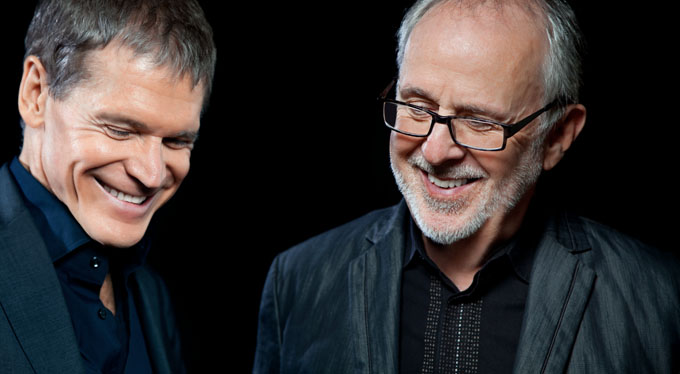 My musical easy button…Having grown up listening to both Bob James and David Sanborn, I can say without hesitation that I may be a tad biased but when you are lucky enough to have your musical horizons broadened thanks to the ever evolving talent of Bob James then life is indeed good. Earlier this year Bob James was kind enough to field some questions for this site and with that came the best reminder a critic or a musician could ever hope for…Always be open to new ideas and new ways for expressing your artistic voice.
My musical easy button…Having grown up listening to both Bob James and David Sanborn, I can say without hesitation that I may be a tad biased but when you are lucky enough to have your musical horizons broadened thanks to the ever evolving talent of Bob James then life is indeed good. Earlier this year Bob James was kind enough to field some questions for this site and with that came the best reminder a critic or a musician could ever hope for…Always be open to new ideas and new ways for expressing your artistic voice.
Aside from the equally talented David Sanborn, the addition of James Genus on bass is nothing short of a stroke of pure musical genius. Genus quietly goes about his craft with the precision and flair that make some draw comparisons to Christian McBride. While artistic comparisons are inherently unfair to all parties it is safe to say that James Genus is on equal footing with any acoustic bassist and paired with legendary drummer Steve Gadd (Eric Clapton, Paul Simon, Steely Dan and Chick Corea) you have a formidable rhythm section with unlimited musicality and the perfect harmonic base from which James & Sanborn can work without a net.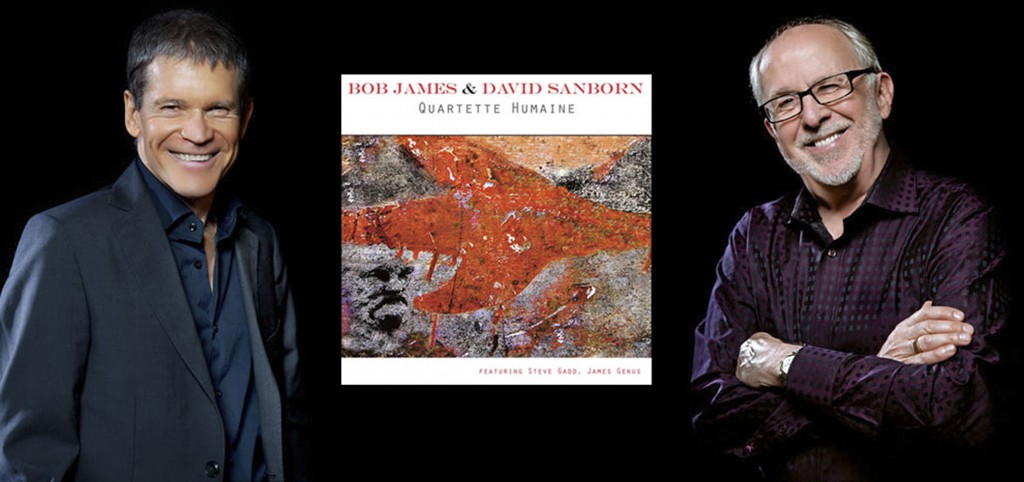
The conceptual basis for this stellar offering is two fold. Bob James has the same innate gift that the great Dave Brubeck has for establishing an emotional connectivity with the audience and musicians involved in this session while David Sanborn assumes the Paul Desmond role while channelling his inner Hank Crawford and David “Fathead Newman” for that lyrical intensity that inspired the young Sanborn while growing up in St. Louis. Quartette Humaine is the first full fledged reunion since the 1986 platinum selling, Grammy Award winning release, Double Vision.
James & Sanborn contribute seven original compositions out of the nine tunes listed with two covers arranged by James. A review in the traditional sense does not seem to work here. For those with more contemporary tastes consider this the acoustic flip side to Double Vision. If the straight ahead vibe is your wheelhouse then you may be hard pressed to find a better recording this year.
Bob James & David Sanborn’s Quartette Humaine is a celebration of great American music from two of the most influential figures across any genre of the music business today.
Perfection on a shiny silver disc.
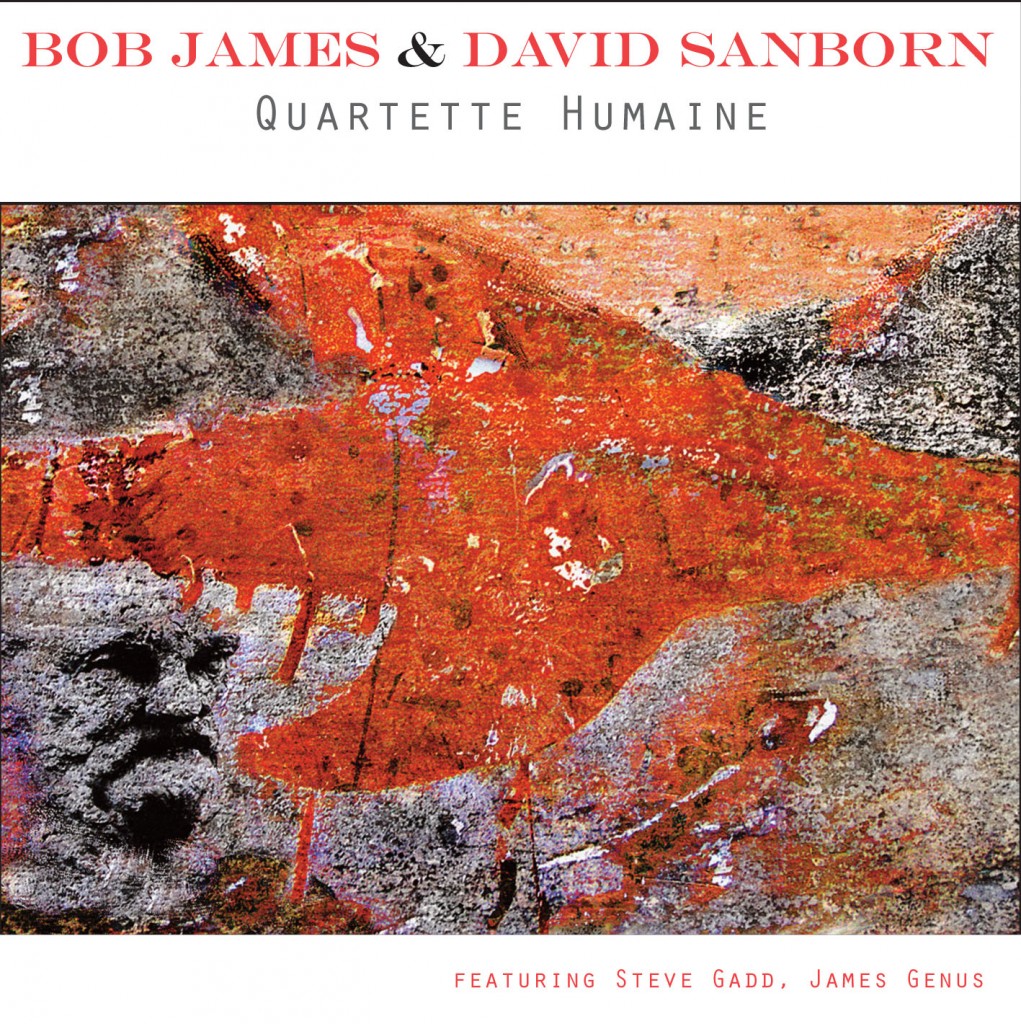 Tracks
Tracks
You Better Not Go To College
Geste Humain; Sofia
Follow Me; My Old Flame
Another Time, Another Place
Montezuma
Genevieve
Deep In The Weeds
Personnel
Bob James: piano
David Sanborn: alto and soprano, sopranino saxophones
Steve Gadd: drums
James Genus: bass
Javier Diaz: percussion on “Deep In The Weeds”
Look for Bob James and David Sanborn to be touring across the United States this summer with dates including the Playboy Jazz Festival on June 16th in Los Angeles and the Montreux Jazz Festival in Montreux, Switzerland on July 16th.
The formidable contemporary jazz quartet Fourplay set it off at Rams Head On Stage in Annapolis on Friday night.
Closing in on 25 years together, the super group featured pianist Bob James, veteran session bassist Nathan East (Eric Clapton, Barry White, Phil Collins), drummer Harvey Mason (Herbie Hancock, Barbra Streisand, Notorious B.I.G.), and guitarist Chuck Loeb (Stan Getz, Chico Hamilton, Ray Barreto).
“All four of us have been in this business long enough to know that there’s always pressure to compromise, and we don’t want to do that,” says James of the group’s current lineup. “We don’t want to end up in the middle of the pack. We always aim to be leaders, and take the music to another level and raise the standards higher.”